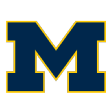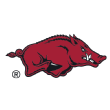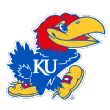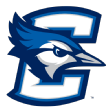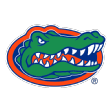Reseeding the men’s March Madness 2021 field for the round of 32
- Covers college basketball
- Joined ESPN.com in 2011
- Graduate of Minnesota State University, Mankato
After two years without NCAA tournament action, the postseason party for men’s basketball has not disappointed. We’ve had thrilling overtime matchups. Plus, a few major upsets have unfolded in the last two days, too. In our attempt to reseed the field, don’t expect a ton of movement after one game (or none, in the case of Oregon). Sure, some of the double-digit seeds who pulled off upsets in the first round are deserving of the attention they have received thus far, but are probably not due a significant change in their standing within the current hierarchy. Now, once we get through the first weekend, it might be a different story. But for now, here is our reseeded field of 32 for the NCAA men’s tournament.
Head to Tournament Challenge and check on your bracket!
1. Gonzaga Bulldogs (Original seed: No. 1; Reseed: No. 1)
Norfolk State kept things close for a few minutes before Gonzaga got serious early in the first half of a 98-55 win over the 16-seed on Saturday. The 98-point tally was a program record for Gonzaga in the NCAA tournament, per ESPN Stats & Info. No team has secured a perfect season since the NCAA switched to a 64-team format in 1985, but it’s that scoring prowess that makes perfection seem possible for a Gonzaga team that hasn’t lost since February 2020. The Bulldogs made 52 percent of their 3-pointers against Norfolk State. Eight players scored at least five points in the game. It’s unclear how a team can stop Gonzaga, also one of America’s best defensive teams, when the Zags are scoring like the Harlem Globetrotters.
2. Illinois Fighting Illini (Original seed: No. 1; Reseed: No. 1)
While the college basketball world has appropriately fixated on Ayo Dosunmu’s rise, you could make the case that Kofi Cockburn is the most difficult matchup for an opposing team. In a 78-49 win over Drexel on Friday, the duo combined to score 35 points (16-for-24 inside the arc) in a game that was over before the Dragons got off the bus. Facing Dosunmu and Cockburn is like trying to fight Ironman and then you look across the court and Captain Marvel is coming for you. Per ESPN Stats & Info, Illinois scored more points in the paint (58) than Drexel scored in the entire game. Loyola Chicago will try to corral this crew next.
3. Baylor Bears (Original seed: No. 1; Reseed: No. 1)
While the last few months have centered on the program’s defensive challenges after its return from a three-week pause, Baylor has remained an offensive threat that can still overwhelm opponents. In four of its seven games entering the NCAA tournament, the Bears scored at least 77 points. That’s why their 79-55 victory over Hartford in the opening round was not unexpected. Their depth — Jared Butler finished just 5-for-16 and the Bears still ran away — carried them to a second-round matchup against Wisconsin. It was also a strong defensive effort, as Scott Drew’s squad held Hartford under a 44 percent clip inside the arc. It was the first time Baylor had smashed an opponent in weeks, but it was also a sign that the team’s swagger is slowly returning.
4. Michigan Wolverines (Original seed: No. 1; Reseed: No. 1)
Entering the NCAA tournament, Michigan had held its opponents to 0.92 points per possession with Isaiah Livers on the floor, per hooplens.com. With Livers still out indefinitely with a foot injury, Brandon Johns Jr. (11 points) stepped up in Michigan’s 82-66 win over Texas Southern on Saturday. The Wolverines aren’t the same group without Livers, but they’re still quite good because Mike Smith, Franz Wagner, Hunter Dickinson and Eli Brooks comprise a nucleus that can still contend. Saturday’s win was easier than will be Monday’s game against an LSU team that’s played well down the stretch of the season. But Juwan Howard’s group played like a top seed on Saturday even without their best player.
5. Alabama Crimson Tide (Original seed: No. 2; Reseed: No. 2)
The problem for opponents that face Alabama is that 6-foot-5 John Petty (10 points, seven rebounds, two blocks) and 6-8 Herbert Jones (20 points, six rebounds) allow Nate Oats’ squad to switch everything without surrendering speed or athleticism. That’s why Alabama is ranked first in adjusted defensive efficiency on KenPom. Iona tried to play the game at a pace (68 possessions) below the norm for Alabama, but the Tide are such an efficient crew (54% mark inside the arc on Saturday) that they’re always in control. During its current 10-1 stretch, Alabama has looked like a top seed and a potential Final Four squad.
6. Houston Cougars (Original seed: No. 2; Reseed: No. 2)
Kelvin Sampson’s team has been taking opponents’ lunch money for the last month, and the Cougars looked like a bully again when they stormed to an 87-56 win over Cleveland State, the Horizon League tournament champion, on Friday. Other than two thrilling, single-digit wins over Memphis in recent weeks, the Cougars have been dominant, winning six of their last eight games by at least 24 points. Quentin Grimes (18 points) continues to make big plays for this crew. But the scary part for opposing teams? Fabian White (12 points), who suffered a torn ACL prior to the season and returned last month, is getting into game shape at the right time.
7. Iowa Hawkeyes (Original seed: No. 2; Reseed: No.2)
The Big Ten is filled with teams that have wing players who can create shots and talented big men who can make life difficult for Luka Garza. But the rest of the field lacks a post presence to confront the Wooden Award contender. Garza finished with 24 points and also recorded a 4-for-5 clip from the 3-point line in Iowa’s 86-74 win over Grand Canyon on Saturday. An Iowa team that’s 9-2 in its last 11 games is playing its best basketball of the season in this chapter. One thing to watch, however, is that Grand Canyon is the third team in the last four games to register at least 1.08 points per possessions against Iowa. The Hawkeyes, however, have scored 137 points per 100 possessions. If Garza plays like this, only a few teams can compete with Fran McCaffery’s squad.
8. Arkansas Razorbacks (Original seed: No. 3; Reseed: No. 2)
After a rocky start, Arkansas pulled ahead in its 85-68 win over a resilient Colgate squad on Friday. Justin Smith led the squad with 29 points. In its last three games, Arkansas has had three different leading scorers (Smith, Moses Moody and JD Notae). In the last two months, the Razorbacks have only lost to Oklahoma State when Cade Cunningham scored 21 points on Jan. 16 and then against LSU when Cameron Thomas and Ja’vonte Smart put up 40 points in the Big East tournament semifinals on March 13. That’s a 13-2 run since Jan. 16 for a Razorbacks group that will face Texas Tech on Sunday.
9. Kansas Jayhawks (Original seed: No. 3; Reseed: No. 3)
Tristan Enaruna and Jalen Wilson were unavailable due to COVID-19 protocols. David McCormack didn’t start after missing a game in the Big 12 tournament due to the same protocols. And Eastern Washington brothers Tanner Groves and Jacob Groves combined to score 58 points. Yet, Kansas still secured a 93-84 win. A resurgent defensive effort had helped KU evolve from an afterthought in January to an intriguing sleeper in February. A team that prepared through a series of shorthanded practices proved it can still win a game with its offensive skills (54 percent inside the arc, 40 percent from the 3-point line). Now, Bill Self’s squad has to hope it can advance and possibly enter the Sweet 16 with its full roster.
10. Oklahoma State Cowboys (Original seed: No. 4; Reseed: No. 3)
The idea that the Cowboys are just a one-man crew has been challenged in recent weeks. Cade Cunningham, the projected No. 1 pick, missed the regular season finale at West Virginia but the Cowboys won. On Friday, Cunningham finished 3-for-14 with 15 points, but Avery Anderson III (21 points, 8-for-14) was one of the three OSU players not named Cunningham who registered nine or more points in a 69-60 win over Liberty on Friday. Cunningham and a reliable supporting cast is a combination that could advance to the Sweet 16 — and maybe beyond that. The Cowboys will face Oregon State — the Golden State Warriors of the Pac-12 right now.
11. West Virginia Mountaineers (Original seed: No. 3; Reseed: No. 3)
Bob Huggins picked up his 900th win with a 94-79 win over Morehead State in the opening round. It was a positive moment for a West Virginia squad that had been 1-3 in its last four games entering the NCAA tournament. When Miles McBride (30 points, six rebounds, six assists and three steals) executes the way he did against Preston Spradlin’s squad, however, the Mountaineers can play with any team in America. Friday was the third time in five games that an opposing team registered 105 points per 100 possessions or more against West Virginia. It was also the third time in five games that WVU scored 80 points or more in a game. Press Virginia? Not anymore. Next up: Syracuse on Sunday.
12. Florida State Seminoles (Original seed: No. 4; Reseed: No. 3)
It seemed as if FSU had control of the game when it had a 21-7 lead in the first half, but UNC Greensboro rallied to cut Florida State’s lead to three points at halftime. Leonard Hamilton’s team picked up the 64-54 win, despite shooting 0-for-9 from the 3-point line. But it was the third time in three games that Florida State failed to score more than one point per possession. We know how good Florida State can be, but the offensive struggles have led to more games that resemble Saturday’s win over UNC-Greensboro than its 21-point win over Virginia last month. Still, a team with RaiQuan Gray, M.J. Walker and Scottie Barnes can compete with any team in the country. A Monday matchup against Colorado is up next.
13. Villanova Wildcats (Original seed: No. 5; Reseed: No. 4)
A one-loss Winthrop Squad was a sexy upset pick in the opening round against a Villanova team without leader Collin Gillespie, who suffered a torn MCL earlier this month. But Villanova’s 73-63 win over the Eagles was a reminder that a team with Jeremiah Robinson-Earl (22 points) and a healthy Justin Moore (15 points) is still a handful for most opponents. Jay Wright’s squad, which had been imbalanced offensively during its first two games (0-2) without Gillespie, recorded 112 points per 100 possessions on Friday. Now, the Wildcats will play a North Texas squad that’s coming off an upset of Purdue.
14. Creighton Bluejays (Original seed: No. 5; Reseed: No. 4)
This team hasn’t looked the part of a second-weekend team — a shift that started after Greg McDermott’s “stay on the plantation” comments — in weeks. Georgetown crushed the Bluejays in the Big East tournament title game and it couldn’t get past Villanova even after Collin Gillespie missed the bulk of the game with a season-ending knee injury. Creighton did little to shake the concerns about its recent trend when it squeezed by 12-seed UC Santa Barbara on Saturday. Marcus Zegarowski (17 points) kept his team alive in the NCAA tournament but Creighton just hasn’t looked like a trustworthy outfit lately.
15. Colorado Buffaloes (Original seed: No. 5; Reseed: No. 4)
Entering the NCAA tournament, Colorado had made 51 percent of its shots inside the arc and 37 percent of its shots from the 3-point line with McKinley Wright on the floor, per hooplens.com. Wright showed how he can make an impact on his squad by guiding a lopsided 96-73 win over Georgetown, the Big East tournament champion, on Saturday with a balanced performance (12 points, 13 assists and five rebounds) for a Buffaloes squad that made 64 percent of its 3-point attempts. Colorado enters its second round matchup against Florida State with a 7-1 record in its last eight games.
16. Texas Tech Red Raiders (Original seed: No. 6; Reseed: No. 4)
Chris Beard’s squad has ended up on the wrong end of a few thrillers this season. Of his team’s 10 losses this season, three were one-point losses in regulation and two losses came in overtime. The Red Raiders were waiting for a chance to play someone outside the stacked Big 12. When they finally got the opportunity, they dismissed Utah State, a top-tier Mountain West squad, 65-53. They held the Aggies to .80 points per possession and made 39% of their 3-pointers (Mac McClung led all scorers with 16 points). Tell me if you’ve heard this before. Texas Tech is an elite defensive team that can beat anyone if it combines that trait with an efficient offensive effort. The Red Raiders will play a tough Arkansas group next.
17. USC Trojans (Original seed: No. 6; Reseed: No. 5)
Drake had caught the nation’s eye after it won its first 18 games. The Bulldogs slid into the first round after a promising win over Wichita State in the First Four. But they had not seen anyone like Evan Mobley, the projected top-three pick in this summer’s NBA draft, per ESPN’s latest mock draft. Mobley and his brother Isaiah Mobley, combined to score 32 points in a 72-56 victory for USC, which advanced to face David McCormack and Kansas on Monday. That frontcourt is a quandary for an opponent. Drake just didn’t have the size to deal with the Trojans, a team that entered the game with a 4-3 mark in its previous seven games.
18. Florida Gators (Original seed: No. 7; Reseed: No. 5)
The Gators didn’t have to prove their resilience. Reaching the NCAA tournament after losing top scorer Keyontae Johnson in December showcased their tenacity. But now they’re aiming to prove they’re a contender. In their 75-70 win over Virginia Tech in the opening round, 6-foot-11 junior Colin Castleton finished with 19 points, 11 rebounds and three rebounds. His growth has been a welcome development for Mike White’s club. Opposing teams have collected 35 percent of their missed shots when Casteton is on the bench and just 29 percent of their offensive rebound opportunities when he’s on the floor, per hooplens.com. Now Tre Mann and Co. will face an Oral Roberts squad that pulled off the biggest NCAA tournament upset since UMBC over Virginia three years ago.
19. LSU Tigers (Original seed: No. 8; Reseed: No. 5)
After Saturday’s 76-61 win over St. Bonaventure, which won the Atlantic 10 tournament championship, Cameron Thomas is now averaging 22.6 PPG over LSU’s last six games (5-1). In a league with powerful Arkansas and Alabama, it was Will Wade’s team that finished first in offensive efficiency in league play. The Tigers haven’t equaled that effort on defense. In their last three losses, they surrendered 80, 83 and 91 points. On Saturday, however, LSU handed St. Bonaventure, No. 1 in offensive efficiency in league play, its worst loss of the season. If the Tigers can get those defensive stops in the next round, they’ll still have a shot against Michigan.
20. Oregon Ducks (Original seed: No. 7; Reseed: No. 5)
The nightmare scenario the NCAA feared unfolded on Saturday when it announced that Oregon’s first-round matchup against VCU had been ruled a “no-contest” due to COVID-19 problems for the Rams. It’s an unfortunate development that allows Oregon to advance while VCU gets sent home. It now goes straight to a Monday matchup against Iowa, not an easy task. But the Ducks have lost only two games since Feb. 4. Eugene Omoruyi (16.7 PPG, 5.2 RPG, 2.2 APG, 38 percent from the 3-point line) is the kind of athlete who could give the Hawkeyes trouble.
21. Loyola Chicago Ramblers (Original seed: No. 8; Reseed: No. 6)
Sister Jean advances after Loyola Chicago’s 71-60 win over a Georgia Tech squad that didn’t have Moses Wright, ACC player of the year, on Friday. This is a familiar team with a serious edge. In some of the metrics that matter, however, this group is even better than the team that made a run to the Final Four run. Cameron Krutwig (14.9 PPG, 6.7 RPG, 2.9 APG) is no longer the young freshman starring for the magical Ramblers in the 2018 NCAA tournament. But Loyola Chicago’s last run included some favorable moments — UMBC eliminated Virginia, Nevada beat Cincinnati and Kansas State beat a Kentucky squad that had Kevin Knox and P.J. Washington. To advance this time, the Ramblers must face an Illinois team that’s playing incredible basketball.
22. Oklahoma Sooners (Original seed: No. 8; Reseed: No. 6)
When the school announced that De’Vion Harmon (12.9 PPG), second in scoring for Oklahoma, would miss Saturday’s matchup against Missouri, some people switched their brackets and the bookmakers in Las Vegas swung the odds to make Missouri a slight favorite. But the Tigers just haven’t been a good team since their surprising Feb. 6 win over Alabama. The team was 3-7 in its next 10 games, including Saturday’s 72-68 loss to an Oklahoma team that wasn’t full strength. But Lon Kruger showed why he’s one of three coaches who has led five different programs to the NCAA tournament when he turned to his vets. Austin Reaves, Elijah Harkless and Brady Manek scored all but 14 of their team’s points.
23. Wisconsin Badgers (Original seed: No. 9; Reseed: No. 6)
After a turbulent finish in the Big Ten, Wisconsin stomped a North Carolina team, 85-62, in the first round by doing what it does best: limiting turnovers (seven) and holding the nation’s top offensive rebounding team significant below its average (41 percent overall, but 30 percent offensive rebounding rate against the Badgers). It was one of Wisconsin’s most impressive wins of the season. But a matchup against Baylor goes against the trend for a Badgers squad that’s 8-10 in its last 18 games largely because it finished 0-9 against Illinois, Iowa, Purdue, Illinois, Michigan and Ohio State in that stretch. The Bears are the kind of elite team Wisconsin has struggled with all season.
24. Maryland Terrapins (Original seed: No. 10; Reseed: No. 6)
The weird screaming match that unfolded between Juwan Howard and Mark Turgeon earlier this month in the Big Ten tournament only highlighted the lingering question about the Terps: What are they doing? You could have said that after they lost to Northwestern and Penn State in the final two games of the regular season and also during their 4-9 start in Big Ten play. But the Terps rescued their season with a five-game winning streak, and showed more of that resilience on Saturday. The 63-54 win over UConn in the first round included a 50% clip from the 3-point line (9-for-18). But Alabama’s defensive effectiveness is a different hurdle for a program that’s fallen to lesser foes in recent weeks.
25. Rutgers Scarlet Knights (Original seed: No. 10; Reseed: No. 7)
Geo Baker, Jacob Young and Ron Harper Jr. combined to score 56 points in a 60-56 win over Clemson in the first round. Nothing has been easy for Rutgers this season, but its win over the Tigers represented the grit it needed to crack the field after finishing 10-10 in the Big Ten. Entering that game, Rutgers had registered 104 points per 100 possessions and committed turnovers on just 14.7% of their possessions, per hooplens.com. When all three players contribute, Rutgers can compete with good teams. Their problem is that Houston, Rutgers’ next opponent, isn’t a good team. It’s a great team.
26. Syracuse Orange (Original seed: No. 11; Reseed: No. 7)
Jim Boeheim’s success in the opening round of the NCAA tournament continues — he hasn’t lost in the first round since 2006. The streak continued because his son, Buddy Boeheim, was unstoppable in his team’s 78-62 win over San Diego State, a 6-seed, on Friday. It was Buddy Boeheim’s third consecutive game with at least 27 points. He’s scored 26 or more in four of the team’s last five games. The idea that teams struggle to compete against the Syracuse zone the first time they see it was proven by San Diego State, which led the Mountain West with a 39.5% clip from the 3-point line in league action, only to finish 11-for-40 against Syracuse, which played above its seed in this matchup.
27. UCLA Bruins (Original seed: No. 11; Reseed: No. 7)
The Pac-12 surge in the first round continued — the league was undefeated — with the Bruins dismissing BYU, a 6-seed. Johnny Juzang made big shots in his team’s win over Michigan State when he finished with 23 points and the former Kentucky transfer scored 27 points in his team’s 73-62 win over BYU. Remember, UCLA had lost four games in a row prior to its First Four matchup against Michigan State. But the Bruins have gone 17-for-37 from the 3-point line in their two NCAA tournament games. There were questions about Mick Cronin being the right fit for the storied West Coast squad after a lengthy stay in Cincinnati, but he’s already exceeded expectations through his first two seasons.
28. Oregon State Beavers ((Original seed: No. 12; Reseed: No. 7)
Will Wayne Tinkle’s squad, which upset 5-seed Tennessee in a 70-56 win on Friday, ever cool off? And, is any of this real? Oregon State finished 10th out of 12 teams in the Pac-12 with a 33% mark from the 3-point line league. In its four games since the regular season ended, Oregon State has made 40% (UCLA), 53% (Oregon), 41% (Colorado) and 48% (Tennessee). Per ESPN’s BPI, Oregon State had a 1 in 820 chance to win all four games. But the Beavers move on, and will now face Cade Cunningham and Oklahoma State.
29. Ohio Bobcats (Original seed: No. 13; Reseed: No. 8)
A few years ago, Jason Preston was a rec league basketball player at UCF who had barely gotten off the bench in high school. On Saturday, Preston (11 points, 13 rebounds and eight assists) led 13-seed Ohio to a 62-58 come-from-behind win over Virginia. It’s unfair to point to UVa’s challenges after a positive COVID-19 test forced the program to withdraw from the ACC tournament and pushed its arrival to 24 hours before the game against Ohio. The Cavaliers had a good lead and just couldn’t hold off an Ohio team that demonstrated its ceiling in a two-point loss to Illinois in the nonconference season. The Bobcats have size, they can shoot and they just held the ACC champions to a 35% clip from the field. The Bobcats are dangerous.
30. Abilene Christian Wildcats (Original seed: No. 14; Reseed: No. 8)
It was fitting that Abilene Christian’s 53-52 win over Texas in the first round ended with a turnover — the 14-seed Wildcats had led the nation in defensive turnover rate. The Longhorns committed 23 turnovers in Saturday’s loss to ACU. Abilene Christian shot under 30% for the game, while Texas made more than 50% of its shots inside the arc. But the pressure from Joe Golding’s squad, which is now 13-1 in its last 14 games entering Monday’s matchup against UCLA, was the difference. Now it will face a Bruins team that’s coming off an upset over BYU.
31. Oral Roberts Golden Eagles (Original seed: No. 15; Reseed: No. 8)
After his team’s 75-72 overtime win against Ohio State, Paul Mills said he had confidence entering the game because his team had been careful all season — top-15 in offensive turnover percentage on KenPom — and Ohio State was ranked 13th of 14 Big Ten teams in forcing turnovers. Plus, Max Abmas and Kevin Obanor have been great all season. Abmas put up double-digit efforts against Oklahoma State, Wichita State, Oklahoma, Missouri and Arkansas during nonconference games. The Golden Eagles are top-15 in 3-point accuracy and No. 1 in the country in free throw shooting. Florida will be a tough test but nothing seems impossible for Mills’ squad after that effort.
32. North Texas Mean Green (Original seed: No. 13; Reseed: No. 8)
The NCAA tournament doesn’t always make sense. North Texas had lost three consecutive conference games before entering the Conference USA tournament, which it won with an overtime victory over Western Kentucky. A fluke, right? Then, North Texas beat Purdue, which finished fourth in the Big Ten standings this season, on Friday, 78-69 in overtime. The run makes more sense when you learn that Javion Hamlet is averaging 19.6 PPG over the last five games. Villanova will present another challenge for this group, but the Mean Green have confidence after scoring at a clip of 118 points per 100 possessions against a Purdue team that finished third in defensive efficiency in league play.
Source: Read Full Article





